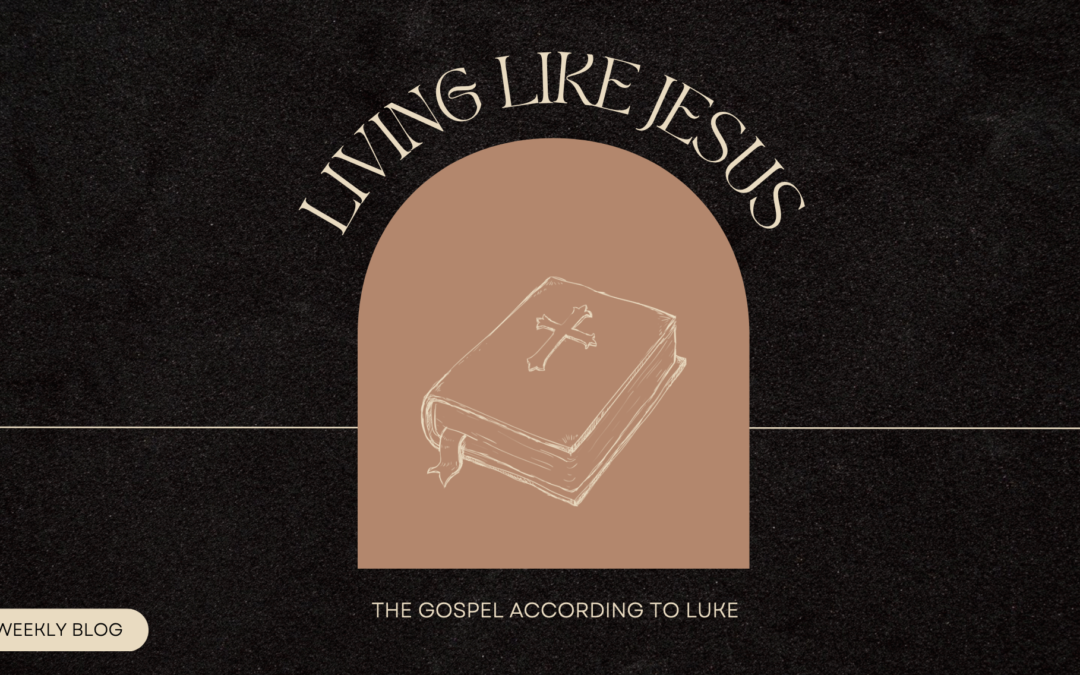LIVING LIKE JESUS: The Gospel of Luke—Week 3
Luke 14:25-33; 16:1-9, 19-31
This week’s passages are difficult to say the least. There are difficulties in interpretation, and there are difficulties in application. For example, in our first passage Jesus states that unless we hate our families or even our own lives, we cannot be his disciples. Hard questions arise, such as “Does Jesus really want me to hate my family?” or “Is Jesus condoning theft in business?” or “If God really loves Lazarus, why does he allow him to die?” Jesus’ words in these passages were likely just as shocking to the original audience as they are to us today. It is not uncommon to find Jesus saying shocking things, for shocking things make us uncomfortable, and being uncomfortable motivates us to action. When we are comfortable, there is no motivation to change the status quo. However, when we are uncomfortable, we look for and work for change. So, how is Jesus challenging us in these passages?
First, I believe Jesus is challenging us to change how we view others in need. As we discussed in Week 1, there was a cultural norm of benefaction. Those of means were expected to give to those less fortunate. The relationship was one between a patron and a client. With such patronizing charity, it was completely acceptable to question the worthiness of the recipient, whether the recipient showed an appropriate amount of gratitude, or whether the recipient would spend the gift appropriately. With friends, however, expectations changed. Friends were expected to share their possessions freely, as between equals. It was no longer a situation of “mine” and “yours”. Everything was now “ours.”
Thus, in the parable of the shrewd manager in Luke 16, Jesus is admonishing us to use our worldly wealth to make friends. No longer are we to look at those in need as “unfortunates” in need of our benefaction. Instead, we are to view them as friends. I am to treat them as if what is mine is theirs with no expectation of recompense on this side of heaven. Can you imagine how different our giving would be if we viewed everyone in need in this way?
The second thing we see in these passages is that with Jesus, having a proper perspective on wealth is not enough. Jesus is calling us to take tangible action to impact the lives of those in need around us. This is abundantly clear in the story of the rich man and Lazarus. The rich man, whom Jesus doesn’t even bother to name, would have been considered blessed by God in the culture of Jesus’ day, for wealth was associated with righteousness and blessing. On the other hand, Lazarus, whose name means “he whom God helps”, would have been considered cursed and sinful because of his lowly estate. Yet, we see that it is the rich man who faces eternal punishment, while Lazarus is escorted to paradise. Jesus is both challenging us to view life and wealth through an eternal—rather than temporal—lens, and he is also reminding us that though God is sovereign, our actions matter and have a real impact on the lives of others. The rich man’s inaction costs Lazarus his life in this world, and it costs the rich man his life in the world to come. It is a sobering reminder of the admonishment of James 4:17, “So whoever knows the right thing to do and fails to do it, for him it is sin.”
Questions:
- Review the passages for this week. What statements by Jesus do you find the most challenging? Why?
- What is the difference in giving as a benefactor and giving as a friend? How would you describe your giving to others?
- Read John 15:15. Given what we’ve discussed this week, how does your view of this passage change? What are the implications of Jesus calling us his friend instead of his servant? Do you reciprocate Jesus’ friendship? Do you give to Jesus as a friend, or more as a benefactor?
- What are some tangible ways you can impact the lives of others in need? (Don’t just talk about it. Come up with an action plan.)






